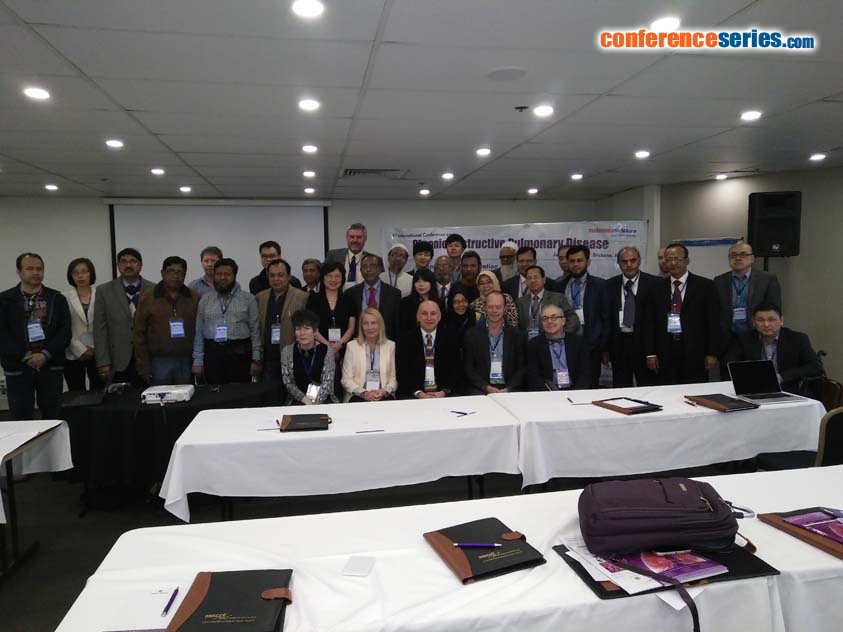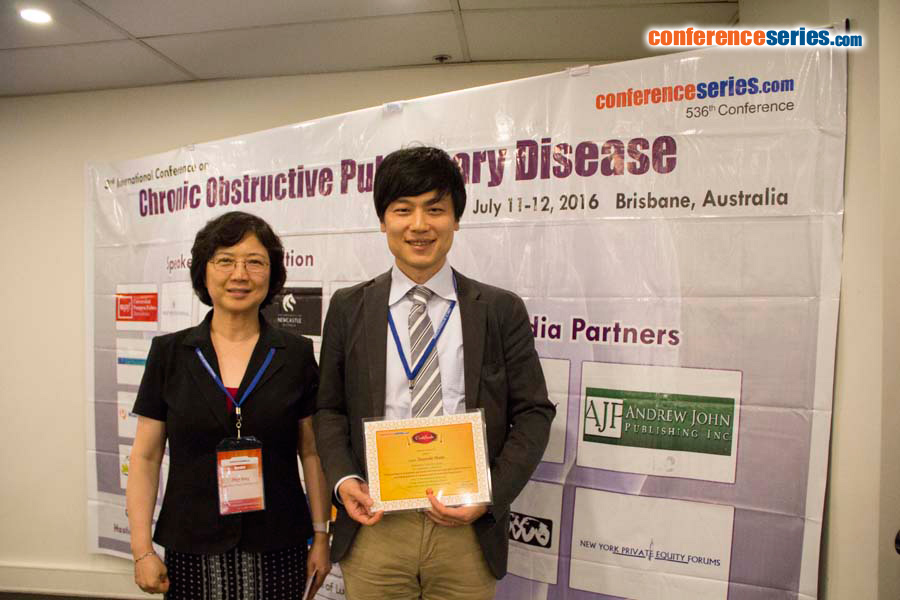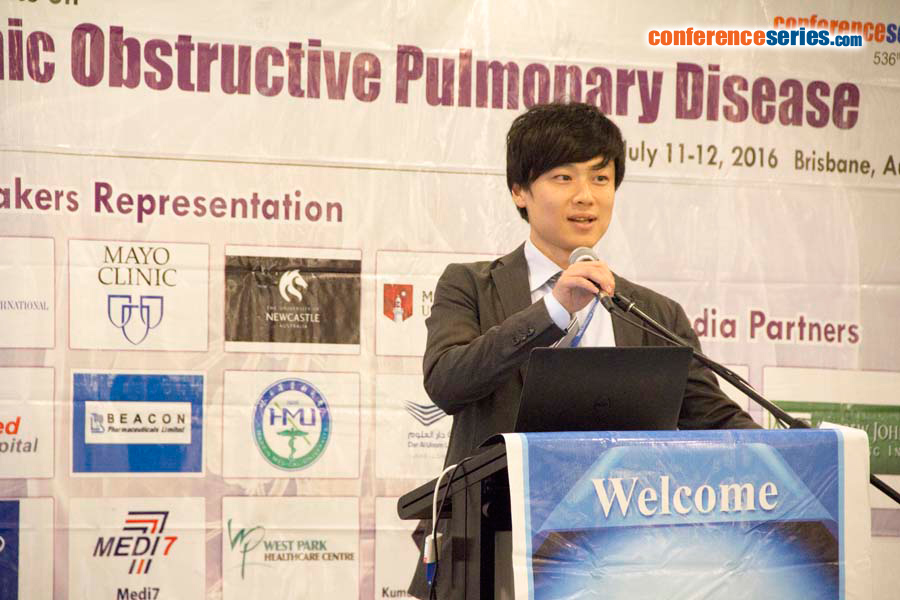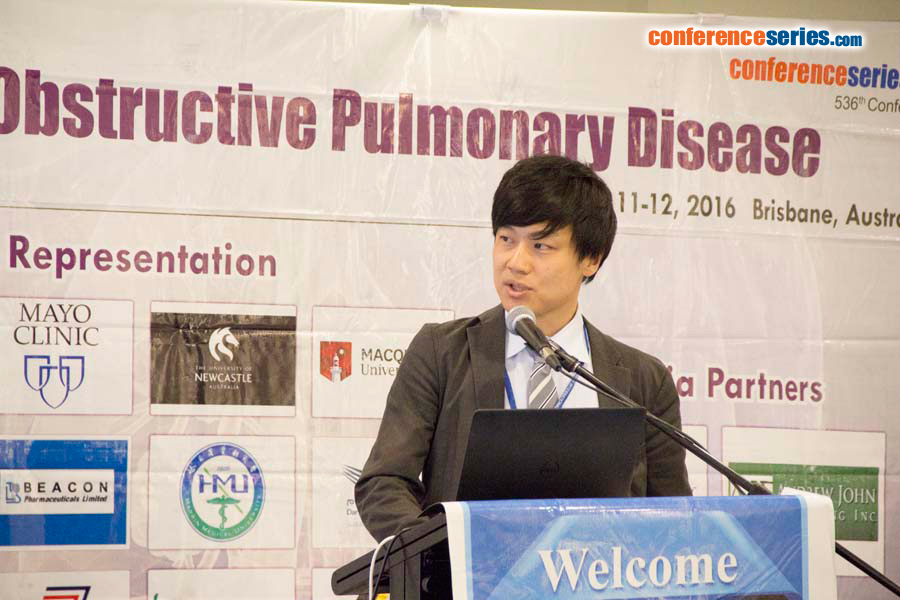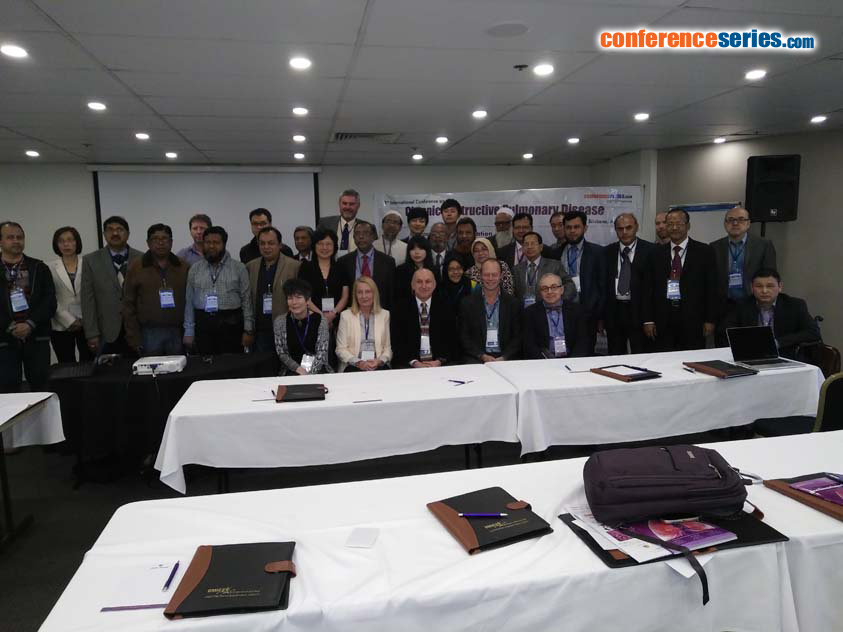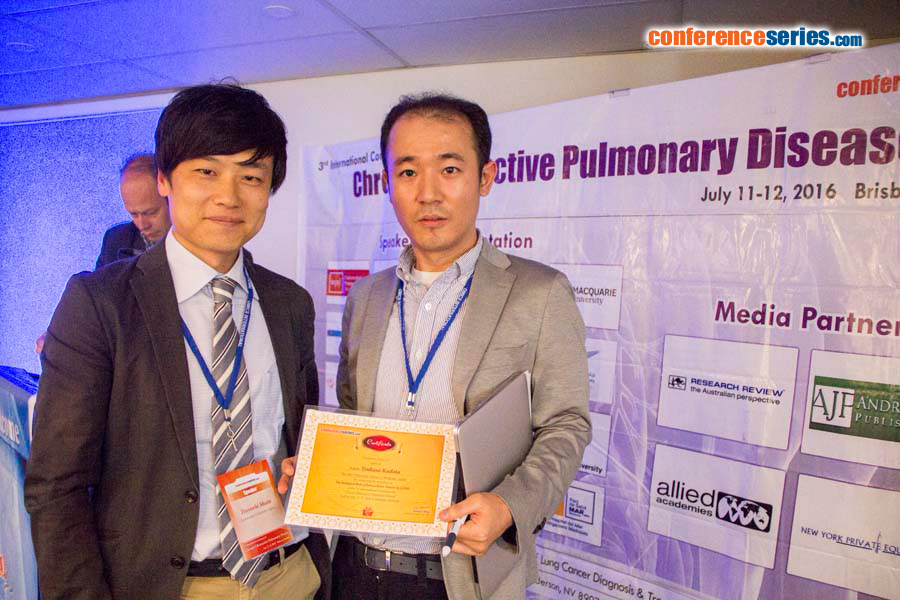
Tsuyoshi Shuto
Associate Professor
Kumamoto University
Japan
Title: Pharmacological and genetic approaches determine protease and oxidative stress as exacerbating factors in a mouse model of obstructive lung diseases
Biography
Biography: Tsuyoshi Shuto
Abstract
Protease-antiprotease imbalance and oxidative stress are considered to be major pathophysiological hallmarks of severe lung diseases including chronic obstructive pulmonary disease (COPD) and cystic fibrosis (CF), but their role in the regulation of mucus obstructive phenotypes including pulmonary emphysema and dysfunction of βENaC-transgenic (Tg) mice, a murine model of COPD/CF, is unknown. Here, DNA microarray analysis revealed that protease- and oxidative stress-dependent pathways are activated in the lung tissue of βENaC-Tg mice. Treatments of βENaC-Tg mice with a serine protease inhibitor ONO3403 and an antioxidant N-acetylcystein significantly improved pulmonary emphysema and dysfunction. Moreover, depletion of a murine endogenous antioxidant Vitamin C (VC), by genetic disruption of VC-synthesizing enzyme senescence marker protein-30 (SMP30) in βENaC-Tg mice, increased inflammatory status in lung tissue and exaggerated pulmonary emphysema with a significant decrease in pulmonary function, possibly due to an increased oxidative stress. Thus, our results define protease and oxidative stress as factors that exacerbate mucus obstructive phenotypes of a mouse model of COPD/CF.


